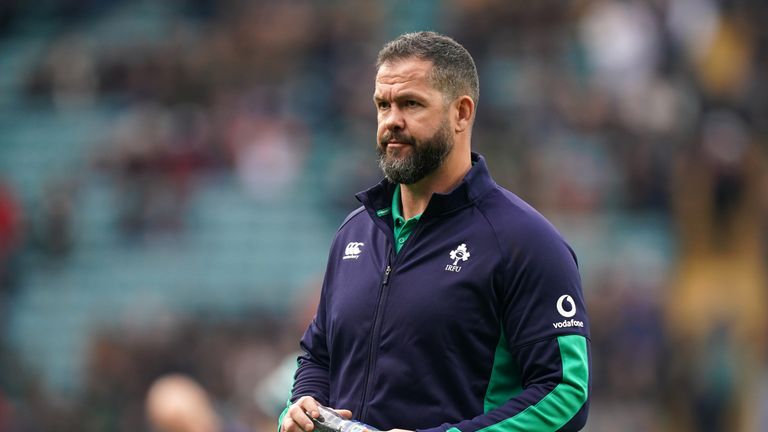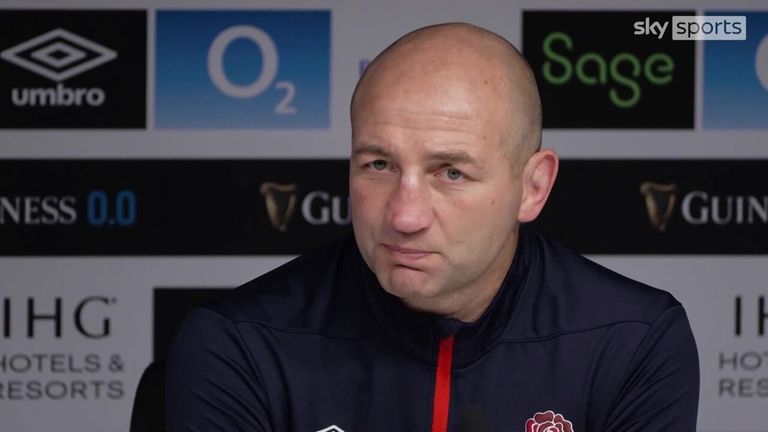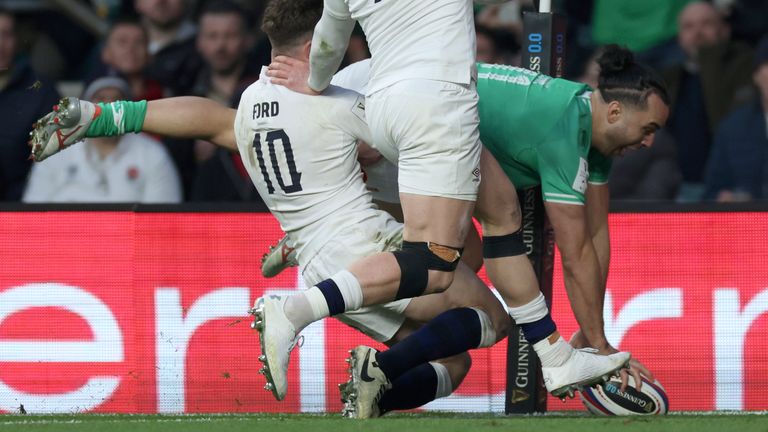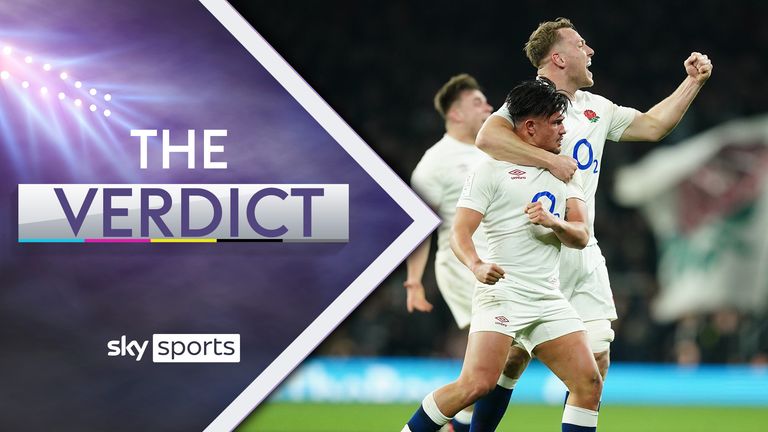[ad_1]
There is a reason back-to-back Grand Slams in the Six Nations have never been achieved in the 24-year history of the championship. It is exceptionally difficult to travel away to all five sides and win every game over two years.
Some magnificent sides have tried. England’s 2003 Rugby World Cup winners won a Grand Slam the same year as that historic victory, but suffered defeat to France in Paris in 2002 as the French secured a clean sweep, while England lost at home to Ireland and away to France in a disappointing 2004 championship display.
Clive Woodward’s England actually won back-to-back titles in 2000 and 2001, but in both years were denied Grand Slams in the very final round: Scotland beating them in Murrayfield in the former year, and Ireland denying them in Dublin a year later – a Test played in October instead of March due to the foot-and-mouth outbreak in Britain and Ireland.
France won back-to-back titles in 2006 and 2007, but via points difference over Ireland on both occasions and having lost their opening clash of the 2006 campaign away to Scotland, meaning they were never on for repeat Grand Slams.
Wales failed to back up their 2008 Grand Slam after a Round 3 defeat in Paris a year later, before a home defeat to Ireland in Round 5 saw the men in green win a first Slam since 1948. A year later, Ireland were crushed in Paris in Round 2 to halt any hopes of another Slam, as France went on to win a clean sweep – incredibly, it was their last title until 2022.
England were denied a 2011 Grand Slam by Ireland in Dublin on the final weekend, while 2012 saw Wales pull off an unlikely Grand Slam, but had no chance of backing it up by losing at home to Ireland on the opening day of the 2013 championship – Wales went on to win the title on points difference by thrashing England and denying them a Grand Slam in Cardiff on the final day.
Ireland won back-to-back titles in 2014 and 2015, but neither were Grand Slams having lost in Twickenham and Cardiff respectively, while Eddie Jones’ England have perhaps come closer than anybody to achieving what nobody has: winning a sensational Grand Slam in 2016 before stuttering to a title in 2017 where they got to Round 5 needing to beat Ireland in Dublin for another Slam, but suffered defeat.
Ireland and Wales traded Grand Slams in 2018 and 2019, while French supremacy over the next three years only saw them come out with one title in 2022, as championships were stolen from their grasps in 2020 and 2021 by England and Wales, despite Les Bleus beating both in the years in question (France having lost in Murrayfield and Twickenham respectively).
And so we arrive in 2023 and 2024. A dominant Grand Slam success for Ireland last year fed into this, but with Johnny Sexton retired and France away in Marseille on an opening Friday night, few were expecting victory.
When Ireland stormed to a 38-17 Stade Velodrome victoire, three home games and Twickenham lay before them, but England’s HQ proved too much. It is hard to foresee which side will have a better chance in the years ahead.
Ireland head coach Andy Farrell has dismissed suggestions retaining the Six Nations title could now feel like an anti-climax, however.
Out of the disappointment of Twickenham, the facts have also arrived to reveal that avoiding defeat to Scotland in the final round will almost certainly ensure Ireland keep hold of their crown, while even a loss would still leave Steve Borthwick’s side requiring a bonus-point win in France to snatch glory.
Should Ireland lift the trophy, it would be their 16th outright championship title in 140 years of competing. It would also be their fifth since 2014.
“Anti-climax? How many times have we won the Six Nations?” Farrell said.
“Everyone would love to be in our position. We’ve got to make sure we’re loving that challenge as well.
“I’ve absolutely no doubt that they (Ireland supporters) 100 per cent will be on song. Paddy’s weekend again, with the chance of winning a Six Nations.
“It could have been a little bit better but Grand Slams are unbelievably hard to come by. Six Nations are hard enough, as everyone would vouch for.”
Indeed, even pre-Six Nations, accounting for France (1997, 1998) and England (1991, 1992) in the Five Nations era, one has to go all the way back to England in 1923 and 1924 for back-to-back Grand Slams prior to those 90s successes.
Ireland were seconds away from remaining on course to snap the Six Nations’ Grand Slam statistic thanks to two James Lowe tries and four Jack Crowley penalties.
But Marcus Smith’s dramatic added-time drop goal earned England a deserved 23-22 victory to keep alive the title race, raising question marks over Ireland’s game management in the final minutes.
“I thought we could have kicked longer and out,” said Farrell.
“There’s one we kicked long and not out; the other one was out and a little bit short. But those are small bits that matter in the end.
“At the end of the day, I might sound stupid saying this but I thought it would have been unjust for England not to win the game. I thought they played really well.”
Get Sky Sports on WhatsApp!
You can now start receiving messages and alerts for the latest breaking sports news, analysis, in-depth features and videos from our dedicated WhatsApp channel!
Find out more here…
[ad_2]
Source link




